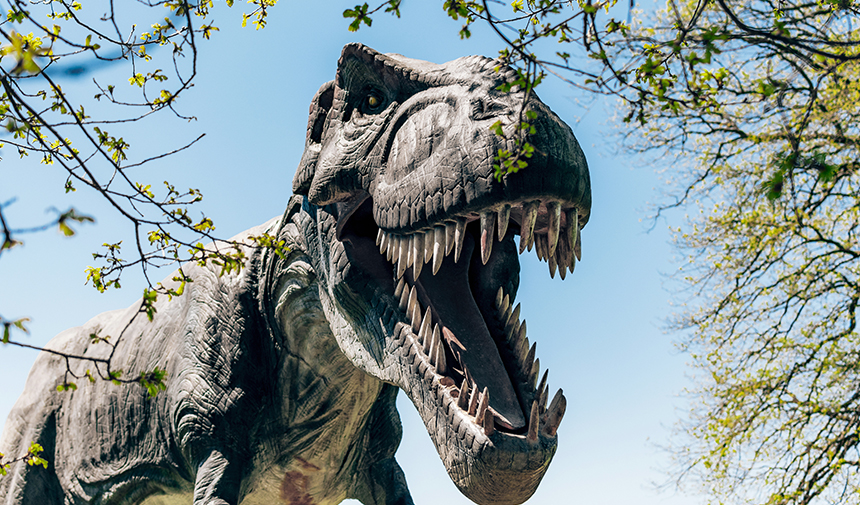Dinosaurs are one of the largest and most interesting groups of creatures that have ever lived on Earth. Around 65 million years ago, at the end of the Cretaceous period, dinosaurs are considered to have suddenly become extinct. This dramatic event led to a reshaping of the earth’s ecosystems and mammals became the dominant species. The real reason behind the extinction of the dinosaurs is a mystery that scientists have been studying for years. In this article, we will examine the current theories about what caused the extinction of the dinosaurs and the evidence that supports these theories.
Asteroid Impact Theory
The most widely accepted explanation for the extinction of the dinosaurs is a massive asteroid impact. According to this theory, about 65 million years ago, a massive impact event in the Chicxulub crater on Mexico’s Yucatán Peninsula caused massive ecological devastation across the globe. The shockwave and heat from the impact caused fires and volcanic eruptions around the world. Dust and particles rising into the atmosphere blocked sunlight, causing global temperatures to drop.
One piece of evidence supporting the asteroid impact theory is the high concentration of iridium found in the impact layer. Iridium is an element commonly found in meteorites and asteroids. Therefore, the increase in iridium concentrations around the world is considered strong evidence for the asteroid impact theory.
Theory of Volcanic Eruptions
Another popular theory for the extinction of dinosaurs is volcanic eruptions. The Deccan Traps in India show that there were large volcanic eruptions near the end of the Cretaceous period. These eruptions caused massive releases of lava and gases, leading to long-lasting changes in the atmosphere. The volcanic gases upset the chemical balance of the atmosphere, creating effects such as acid rain and global cooling.
The theory of volcanic eruptions can explain the extinction of the dinosaurs by combining it with the asteroid impact theory. Both asteroid impacts and volcanic eruptions can cause severe damage to ecosystems and disruptions in the dinosaur food chain.
Combined Impacts and Ecosystem Changes
Some scientists suggest that the extinction of dinosaurs was not caused by a single cause, but by a combination of several factors. A combination of factors such as asteroid impacts, volcanic eruptions, sea level changes and climate fluctuations may have upset the balance of dinosaurs in ecosystems.
These combined effects disrupted the food chain and negatively affected the living conditions of dinosaurs. Some dinosaur species became extinct, unable to adapt to climate and environmental changes. This theory suggests that the extinction of dinosaurs was a complex process and that several factors played a role.
Conclusion
The real reason behind the extinction of dinosaurs is most likely not due to a single event. A combination of factors such as asteroid impacts, volcanic eruptions and climate changes may have altered dinosaur ecosystems and led to their extinction. These theories offer important clues to understanding the mysterious end of the dinosaurs.



